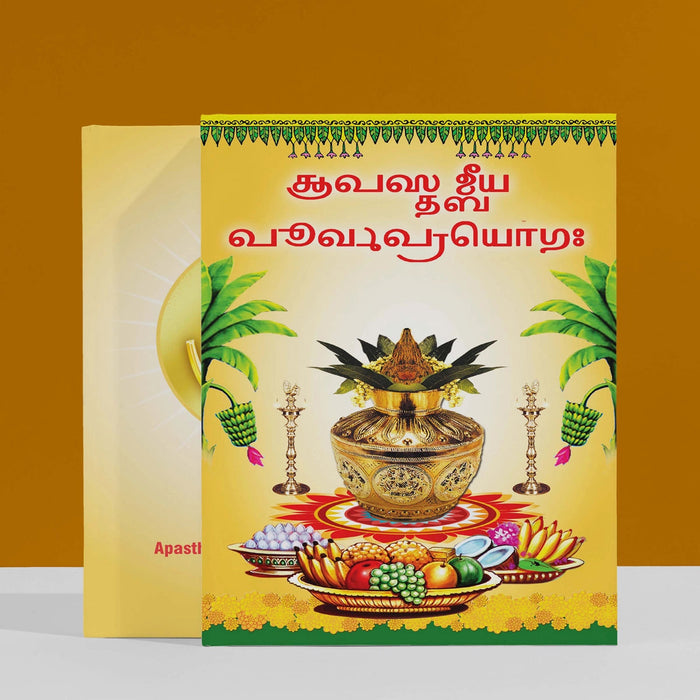
Apasthambheeya Purvaprayogaha - Grantha | Vedas Book
The Apasthambheeya Purvaprayogaha is a significant text in the realm of Vedic studies, particularly within the context of the Apastambha Sutras. This ancient Sanskrit text belongs to the category of Vedangas, and it provides detailed instructions on the proper execution of the rituals and ceremonies outlined in the Vedic tradition, specifically focusing on the Purvaprayoga, which is a precursor ritual to the main sacrificial acts.
The text is a comprehensive manual of Vedic rituals, offering an in-depth explanation of the preparatory rites necessary before undertaking the larger sacrifices or yajnas. The term "Purvaprayoga" can be translated as "the preliminary rituals" that lay the groundwork for the main rites. These include offerings, prayers, invocations, and purification processes, all crucial for ensuring that the ritual space is spiritually and physically prepared for the performance of sacred acts.
The Apasthambheeya Purvaprayogaha Grantha specifically provides a set of rules and guidelines for performing these rituals in a way that aligns with the traditional practices established by Rishi Apastamba. It not only covers the ritualistic details but also incorporates the philosophical, ethical, and spiritual aspects of performing these rites. By following the prescribed steps, practitioners aim to invoke the presence of divinity, ensure the sanctity of the ritual, and bring about spiritual benefits for themselves and the community.
This Vedic Grantha is considered essential for those who are involved in the study and practice of Vedic rituals. Priests, scholars, and spiritual aspirants turn to this text to ensure that their Vedic practices align with the ancient traditions laid out by the seers. Additionally, it serves as a guide for those looking to understand the deeper significance of each ritual step, how it connects to cosmic order, and how it aids in attaining spiritual liberation.
The Apasthambheeya Purvaprayogaha is a highly specialized text, and its study requires a deep understanding of Vedic philosophy, Sanskrit, and the broader context of Vedic ritualism. It is an indispensable resource for anyone seeking to preserve the purity and authenticity of ancient Vedic practices.

















